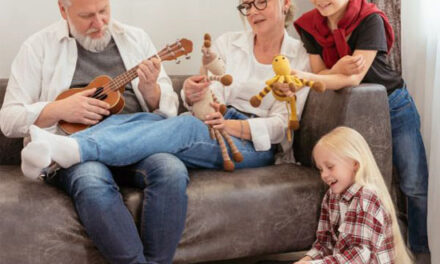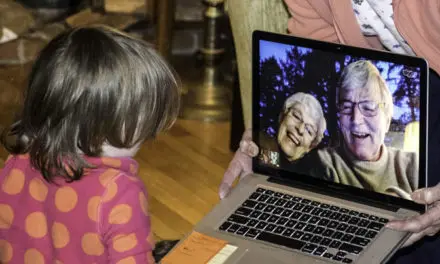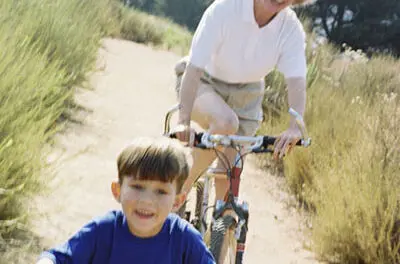by Ken Canfield, Ph.D.
We recently announced a big loss in my life—the passing of my wife of 43 years, Dee. I don’t want to be morbid or depressing to anyone, but the past few months have opened my eyes to the reality of death and grieving. As grandparents, we know we’re likely closer to those experiences—if we haven’t gone through them already—and they will impact us and our loved ones.

So, how can we navigate this journey in a way that’s healthy and helpful to the entire family?
If we are grandparents, then we can’t curl up into a ball or go off on our own personal journey of healing. We are still matriarchs and patriarchs—family leaders. And even though it’s very difficult for us, we need to stay engaged with our children and grandchildren and help them as best we can. Here are a few things I have learned recently:
First, recognize that each person processes loss and grief in their own way—and at their own rate.
It’s important to be deliberate and very understanding of other family members. Losing a loved one is a monumental change, and we mustn’t be on a timetable or expect someone to “get over it already.” It also means avoiding any erratic decisions, but allowing ourselves and others time to process and verbalize what the deceased person meant, what they brought or didn’t bring to our lives, and so on. It takes time and understanding to help others move toward healing.
Second, we should nurture—but not shield—our grandkids.
We don’t protect them by hiding them from life’s pain or uncertainty, but by loving them through it. With my wife’s passing, there are all kinds of questions I’m asking in relation to my grandchildren:
What are they feeling right now? And what will they experience in the future when the family is together for birthdays, Christmases or vacations, when they enjoyed their Nana there? How will all that be worked out?
There’s a lot I can’t anticipate, but I know that simply my presence and continuing positive relationships with them will be reassuring, and an important factor in their healing. During times of loss, that may be one of the best gifts that we grandparents can give.
And third, don’t take for granted any of the moments you have with your grandkids.
There’s an interesting and powerful statement in the Psalms that says, “May you live to see your children’s children.” I’m thankful that Dee had the opportunity and the joy of seeing her children’s children—twelve of them over the past thirteen years. It was so rewarding for her to love and help care for them, and they deeply loved their Nana and were blessed in many ways by her.
We should all recognize what a privilege it is to be involved in our grandkids’ lives; many of us have precious opportunities that not all grandparents have.
Surely other grandparents have experienced loss. What other advice would you add about grandparenting after losing a spouse? Please contribute your insights and help other grandparents on our Facebook page.




